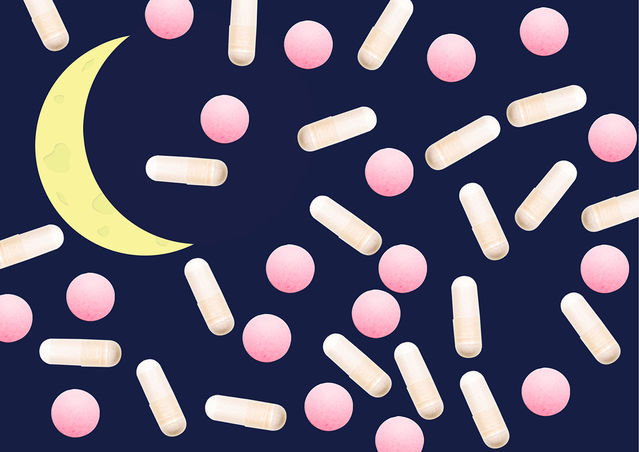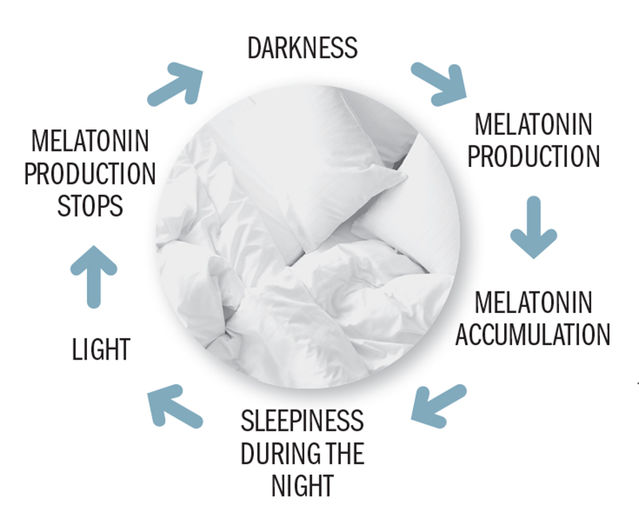How Sleep Keeps The Peace
Research reveals the power of sleep to ravage—or restore—mental health.
By Abigail Fagan published April 29, 2020 - last reviewed on June 13, 2020

Today’s fast-paced world leaves little time for sleep. Forty-hour work weeks are just dreams for those toiling late into the night or checking in remotely after they leave the office. Technology also offers an array of distractions that easily overpower bedtime.
For these reasons and more, many Americans fail to get enough sleep: More than 35 percent of U.S. adults sleep less than the recommended seven hours per night, according to the Centers for Disease Control and Prevention.
Carving out time for rest is critical. Some of the most common emotional and behavioral challenges—stress, anxiety, and depression—are closely connected to sleep. Shortchange the circadian clock that helps regulate all cellular processes and you pave the way for many kinds of dysfunction.
Seventy to 80 percent of people with anxiety disorders report trouble sleeping. And many people with sleep disorders suffer from anxiety. Scientists at the University of California, Berkeley sought to understand the extent of the connection and how it unfolds.
In one experiment, a group of study participants slept in a lab overnight while another group was forced to stay awake. In the morning, all watched an emotional video, after which their anxiety levels were assessed via questionnaires. For those who stayed awake, anxiety shot up 30 percent. Perhaps that’s not surprising given the disruption an all-nighter creates. But a second study revealed that even minor sleep interference led to spikes of anxiety levels the next day.
The scientists also analyzed brain activity through fMRI. There were two key regions to assess: the amygdala, which directs emotional responses, and the prefrontal cortex, responsible for emotion regulation, decision-making, and critical thinking.
After a night of poor sleep, the amygdala was unchanged, and emotions were felt as strongly as ever. But prefrontal cortex activity diminished, so the brain’s reserves to manage emotion were depleted. By contrast, a full night of sleep, especially if it encompassed the deep-sleep stage called slow-wave sleep, led to strong activity in the prefrontal cortex and lower anxiety.
Together the findings suggest that sleep problems may not be just a symptom of anxiety but a reason it persists, says Eti Ben Simon, the lead researcher on the study.
Ben Simon speculates that slow-wave sleep resets the balance between the sympathetic nervous system (guardian of the fight-or-flight response) and the parasympathetic nervous system (rest and digest). Stress and anxiety during waking hours activate the sympathetic system. But the parasympathetic system dominates slow-wave sleep, when heart rate slows and blood pressure drops.
Sleep disturbances rob the body of this soothing cycle. “When our sleep is disturbed, the balance may not be restored,” Ben Simon says. “That balance may be one of the mechanisms that helps fight anxiety the next day.”
Setting aside enough time for sleep is one thing, but actually falling asleep is another. Enter melatonin, which synchronizes the biological clock. The production and accumulation of the hormone creates the feeling of drowsiness, signaling that it’s time to go to bed. Melatonin doesn’t change how long or how deeply one sleeps. But when the sleep cycle is disrupted—common among older adults, shift workers, and travelers—taking a melatonin supplement can help.
Taking melatonin isn’t the only way to bring on sleep. Magnesium regulates the neurotransmitters that promote sleep, and there’s evidence that it can improve sleep quality. The majority of Americans, however, consume a magnesium-deficient diet. Theanine, a compound present in tea, also modulates the neurotransmitters that influence sleep and can be taken in concentrated form via supplements. Tryptophan, a building block of serotonin, helps produce melatonin and is another agent that regulates sleep-wake cycles.
“If you protect your sleep,” Ben Simon concludes, “it will protect you in return.”
Sleep by the Numbers
- The right amount of sleep varies by a person’s age, but adults from 18 to 64 need seven to nine hours per night, according to the National Sleep Foundation.
- It typically takes an adult between 10 and 20 minutes to fall asleep.
- Ten percent of Americans experience chronic insomnia, according to the CDC.
- A night of poor sleep lowers pain tolerance the following day by 15 percent.
- Keeping the same sleep schedule every day, creating a relaxing bedtime routine, maintaining a cool bedroom, and avoiding screen time before bed all aid sleep.
- The natural human circadian rhythm cycle is 24.2 hours long.
- Circadian rhythm is governed by the suprachiasmatic nucleus, a group of cells in the hypothalamus that receive input from light-sensitive neurons.
Melatonin Matters

LinkedIn Image Credit: Rachaphak/Shutterstock
